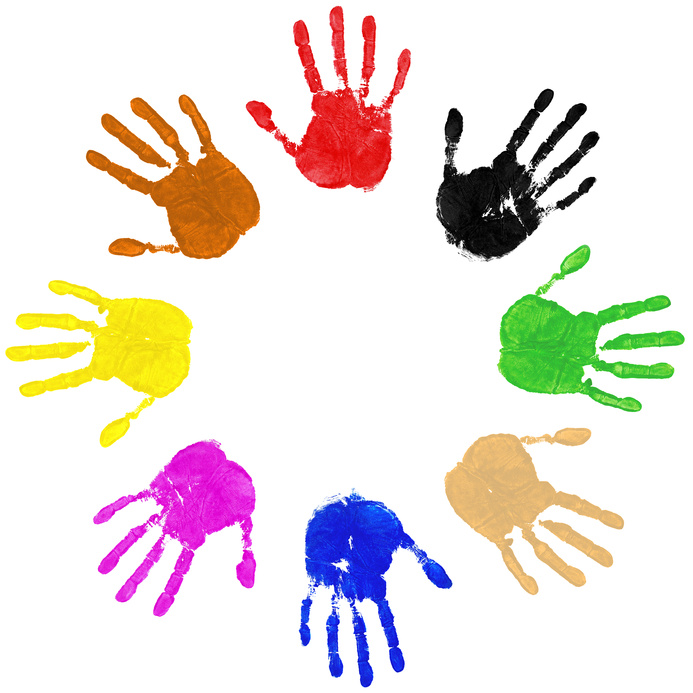InterNations member and guest blogger Juanita Kwarteng, a Ghanian-Canadian who grew up in the Middle East, is a true advocate of open-mindedness and cross-cultural communication who has dedicated her life to celebrating diversity. Here she gives us her very personal take on culture shock.
For me, culture shock is the closest way to feel like a baby in an adult’s body because everything is new again.
 Culture shock is a way to describe the process of leaving a familiar culture to live in a new and very different culture. Not knowing how to eat, how to speak, where to go when you move to a new country can be a frustrating but also one of the best experiences a person can go through.
Culture shock is a way to describe the process of leaving a familiar culture to live in a new and very different culture. Not knowing how to eat, how to speak, where to go when you move to a new country can be a frustrating but also one of the best experiences a person can go through.
What can be normal in one culture can be very different or even considered unusual in another. Culture consists of common values, beliefs, and attitudes that people learn from family, friends, media, and their environment. Beliefs, attitudes, and behaviors shape the way a group of people eat, communicate, and their sense of humor.
 I have felt a range of emotions such as sadness, homesickness, frustration, and gratitude as part of my culture shock experience and it is very normal. I believe that the process of culture shock is a journey. You can start with being excited about everything, then move to homesickness, and then begin to feel comfortable in your new environment. Everyone has their own journey and I don’t believe that any two people will experience adapting to the same country in the same way.
I have felt a range of emotions such as sadness, homesickness, frustration, and gratitude as part of my culture shock experience and it is very normal. I believe that the process of culture shock is a journey. You can start with being excited about everything, then move to homesickness, and then begin to feel comfortable in your new environment. Everyone has their own journey and I don’t believe that any two people will experience adapting to the same country in the same way.
I feel blessed to have had the experience of living and adjusting to many countries. Why do I love culture shock? Well, it’s because of what I’ve come to call “the three Ps of culture shock”: Patience, Persistence, and Positivity. Through these three P’s, I have come to realize that culture shock can be a blessing if you allow it to be.
 Patience – I think attitude is everything with culture shock. I’ve learnt to realize that for a while when moving to a new place I’m not going to know as much I knew in my home country. I don’t expect to know everything because things are very new. And when I am patient with myself I am able to focus on enjoying the process of learning about a new country.
Patience – I think attitude is everything with culture shock. I’ve learnt to realize that for a while when moving to a new place I’m not going to know as much I knew in my home country. I don’t expect to know everything because things are very new. And when I am patient with myself I am able to focus on enjoying the process of learning about a new country.
Persistence – I believe that is it important to invest energy into the life that you are looking for. I think it’s important to set goals and do everything you can to achieve them. I think that knowing what you are working for can keep you motivated during very difficult times.
Positivity -Finding ways to stay positive through culture shock is very important. Staying positive for me is doing anything that brings you joy. Doing things like calling home, making new friends, asking for help when you need it, and exercising, are EXTREMELY important. Over time, I have realized that these are the MOST important things to keep doing when things get hard.
Culture shock is very difficult. But I have come to see it as a rewarding process that helps me grow as a person. I hope to keep traveling and experiencing it in countries all over the world. Yeah culture shock!
Thank you Juanita Kwarteng of 1000culturalencounters for your contribution to our blog.
Good afternoon, Juanita.
First off all, I told you “good afternoon” because it is ten to one PM here in Brazil, ok?!
Dear friend, I enjoyed your definitions about Culture Shock and I would like to ask your permission to use it in my blog.
I am a private teacher in Brazil and I have been writting something to my students and other interested people related about English: Grammar, tips and, of course, cultures which have used this language.
More of that, your tips for that are marvelous.
Then, if you could visit me in my blog, it will be a great pleasure.
Thanks a lot.
Jurandir